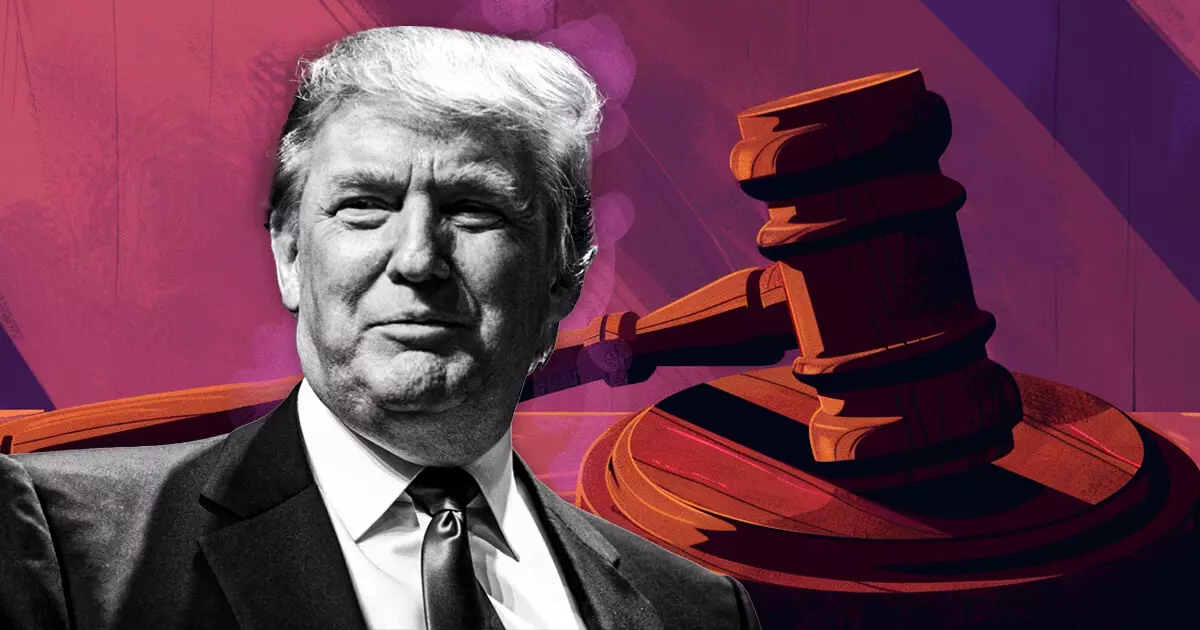The landscape of cryptocurrency and decentralized finance (DeFi) is notoriously labyrinthine, particularly for new entrants. Recent comments by SEC Commissioner Mark Uyeda shed light on the obstacles that former President Donald Trump’s DeFi project, World Liberty Financial, will inevitably encounter. Uyeda emphasized that, like all U.S. crypto ventures, World Liberty Financial will not be immune to stringent regulations. Instead, the project must adhere to the same standards of disclosure and transparency that govern all digital asset firms operating within the United States. This stark reminder of the current regulatory reality sets a critical tone for Trump’s ambitious venture, highlighting that aspiration alone cannot guarantee success in the crypto space.
It is crucial to understand that the SEC operates primarily as a disclosure regulator, not as a “merit regulator.” This means that the agency’s primary focus is not to evaluate whether a project is good or bad, but rather to ensure that all relevant information is accessible to investors. Uyeda openly expressed his concern regarding calls to shift the SEC’s role, emphasizing that such changes could derail the fundamental objectives of regulatory bodies. As World Liberty Financial gears up for launch, it must recognize that merely having the former leader of the free world associated with it does not shield it from the scrutinous eye of regulatory compliance.
The SEC’s stance underscores the often-complex dynamics between innovation and regulation in the cryptocurrency space. With regulations evolving rapidly and inconsistently, businesses are left maneuvering through murky waters. Uyeda’s comments imply that Trump’s legal team must assemble top-tier legal expertise to navigate the unclear landscape, akin to the challenges faced by countless other entrepreneurs in the crypto sector.
Political factors add another layer of complexity to the regulatory environment facing World Liberty Financial. Given the stark partisan divide, many speculate that the Democratic party may push for heightened scrutiny of the project, viewing it through politically charged lenses. The implications of this partisanship could lead to a more extensive regulatory framework that may not only affect Trump’s venture but also set a precedent for how similar projects are treated in the future. Commissioners like Uyeda and Hester Peirce have voiced concerns over the toxic regulatory environment, indicating their apprehension regarding the impact of fluctuating political agendas on innovation in the crypto industry.
Despite the skepticism from investors regarding the viability of World Liberty Financial, Trump has made bold claims about positioning the United States as a leader in the global crypto market. However, the success of the venture is likely contingent on a myriad of factors, including but not limited to a favorable regulatory environment and clear guidelines from the SEC. The agency’s reluctance to provide straightforward guidance has fostered uncertainty, prompting concerns that innovation may shift to jurisdictions with more lenient regulations.
Furthermore, the ongoing demands for a more transparent regulatory framework have gained traction across legislative circles. Some lawmakers are advocating for the establishment of a joint advisory body that could assist in crafting coherent regulations for the crypto sector. If such a framework were to materialize, it would potentially benefit World Liberty Financial significantly, allowing it to operate with greater clarity than currently afforded.
In summation, the regulatory landscape that Donald Trump’s World Liberty Financial faces is fraught with complications. With the SEC’s emphasis on disclosure rather than the merit of individual projects, coupled with potential political challenges, the venture must adopt a proactive stance in addressing its legal and regulatory requirements. While ambitions are laudable, they must be met with pragmatic actions. As the broader industry confronts a lack of clear regulatory guidance, the future will hinge on whether stakeholders can foster an environment that balances innovation with accountability. Thus, the success of World Liberty Financial is as much about regulatory navigation as it is about technological promise.


Leave a Reply